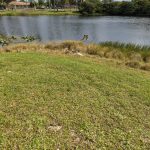Year: 2022
MapRel-Me Profile Link Verification on WordPress for Mastodon and Other Services
Rel=”me” is a property you can add to links to say that the link represents the same person/entity as the page being linked from. Bi-directional rel-me link verfication means page A and page B both link to each other with rel-me…so you can prove both are under the control of the same person.
On Mastodon, doing this gives you a verified indication in your profile. But, the Indieweb community has already been using this for years for the same purpose.
There are a lot of WordPress plugins for Indieweb Building blocks. But for identity, this is built into the Indieweb plugin itself. In addition to suggesting other plugins to add more Indieweb stuff, it offers the identity features using rel-me.
On the Options page in Admin for the plugin, there is an option to set whether or not the site represents a single person/entity, and to set who the default author is. If you don’t set it, it will put the rel-me links on your author archive(usually /author/username). Otherwise, it will put them on the homepage.
It adds standard profile fields under your URL and uses them to generate rel-me links. By default, these links are hidden links, not visible, so they should just work.
However, if you want them visible, there are 2 options
- One of two widgets. One for an entire profile with the rel-me links displayed as icons, the other for just the links displayed as icons
- Manually adding them to your theme.
I know we should have a block, but I confess to never having written one. One of these days I’ll have to bite the bullet and do so.
A growing collection of Chanukah Music I find on Youtube.











